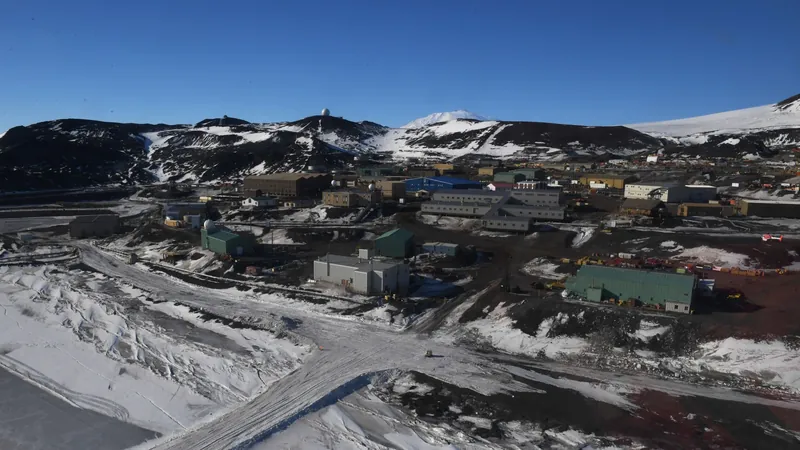
Shocking Report: Sexual Harassment in Antarctica Raises Alarming Questions for Future Space Missions
2025-08-27
Author: Jia
A recent survey conducted by the U.S. National Science Foundation (NSF) reveals a disturbing trend: over 40% of respondents experienced sexual assault or harassment during their time at Antarctic research bases. These findings could have serious implications for future manned missions on the Moon and Mars.
Antarctica is not just a frigid wasteland; it serves as a critical analog for the isolated and confined environments of future space habitats. The NSF has committed to working closely with its participants and other organizations to enhance safety and support measures in these extreme conditions.
A Call for Change in Remote Work Environments
NSF officials emphasized their commitment to fostering a culture free from sexual violence, asserting that they will use the survey results to improve safety protocols within the U.S. Antarctic Program (USAP). A spokesperson stated, "NSF is dedicated to keeping the USAP community safe." In a separate report, polar scientist Asa Rennermalm noted that these surveys are crucial for documenting experiences that have historically been overlooked.
However, looming budget cuts and pressure from the current administration raise concerns about how effectively the NSF can implement change. Despite these challenges, the NSF aims to leverage the survey data for continuous improvement.
Preparing for Future Space Missions
The harsh conditions of Antarctica can mimic those astronauts may face on long-duration missions in space, where mental health and team dynamics are paramount. Research emphasizes the importance of proper screening and training for individuals in isolated environments—practices that NASA has been refining for decades.
Crew members on the International Space Station (ISS) undergo extensive training, including mock scenarios in caves and underwater habitats, while receiving psychological support throughout their missions. Ensuring the safety and wellbeing of crew members on potential missions to the Moon or Mars is crucial, especially given the shocking statistics revealed in the NSF report.
An Alarming Overview of the Survey Results
The NSF's survey, which targeted 2,760 individuals deployed in Antarctica from 2022 to 2024, found that nearly 70% of recipients reported witnessing acts of sexual harassment or assault. Among those who experienced victimization, over half were women. This troubling trend has spurred the House Committee on Science, Space, and Technology to scrutinize the NSF's management of USAP, leading to calls for necessary reforms.
NSF officials stress that the survey isn’t directly indicative of future space missions but could serve as a valuable lesson for organizations operating in remote settings. The foundation aims to reduce incidents of harassment, increase reporting, and create a safer workplace through effective intervention training.
Moving Forward: Recommendations for Change
Key recommendations from the survey include decreasing the prevalence of harassment, improving trust in reporting mechanisms, fostering positive bystander intervention norms, and enhancing supervisory engagement in prevention efforts. The NSF is already working towards implementing some of these changes, including more rigorous incident tracking and training programs.
As we look forward to human exploration beyond Earth, ensuring the safety and psychological well-being of crew members is vital. The lessons learned from Antarctica could serve as a blueprint for establishing safe, supportive environments in the most isolated and extreme settings humanity faces.



 Brasil (PT)
Brasil (PT)
 Canada (EN)
Canada (EN)
 Chile (ES)
Chile (ES)
 Česko (CS)
Česko (CS)
 대한민국 (KO)
대한민국 (KO)
 España (ES)
España (ES)
 France (FR)
France (FR)
 Hong Kong (EN)
Hong Kong (EN)
 Italia (IT)
Italia (IT)
 日本 (JA)
日本 (JA)
 Magyarország (HU)
Magyarország (HU)
 Norge (NO)
Norge (NO)
 Polska (PL)
Polska (PL)
 Schweiz (DE)
Schweiz (DE)
 Singapore (EN)
Singapore (EN)
 Sverige (SV)
Sverige (SV)
 Suomi (FI)
Suomi (FI)
 Türkiye (TR)
Türkiye (TR)
 الإمارات العربية المتحدة (AR)
الإمارات العربية المتحدة (AR)